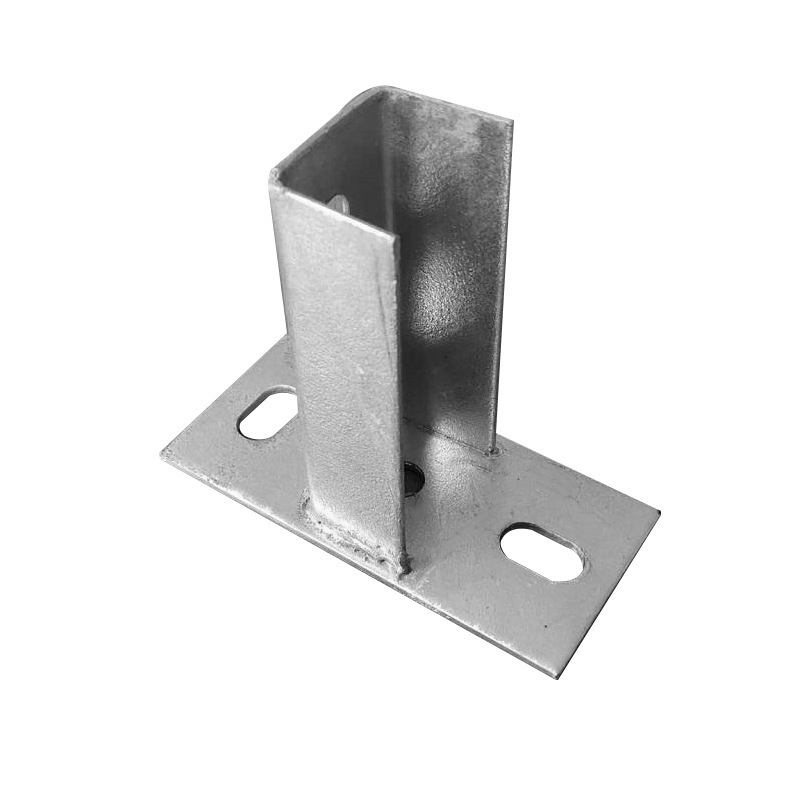

Self-Drilling Screws Ideal for Corrugated Metal Applications and Quick Installations
Oct . 21, 2024 23:11 Back to list
Self-Drilling Screws Ideal for Corrugated Metal Applications and Quick Installations
Self-Tapping Screws for Corrugated Metal An Essential Guide
In the realm of construction and metalworking, choosing the right fasteners is crucial for ensuring the longevity and stability of structures. Among various fastening solutions, self-tapping screws stand out as an indispensable option, particularly when dealing with corrugated metal. These screws, designed to create their own threads as they penetrate materials, provide numerous advantages that make them well-suited for applications involving corrugated metal sheets, commonly used in roofing, siding, and other structural components.
Understanding Self-Tapping Screws
Self-tapping screws are engineered to drill into materials without the need for a pre-drilled hole. This capability makes them especially beneficial for sheet metal applications, which require a reliable and robust fastening method. Unlike traditional screws that necessitate pilot holes, self-tapping screws increase efficiency and reduce labor time, making them a favorite among contractors and DIY enthusiasts alike.
These screws generally feature a sharp, pointed tip, allowing them to pierce through metal easily. The unique thread design further aids in cutting into the surface material, ensuring a tight and secure fit. They come in various sizes and materials, including steel, stainless steel, and zinc-plated options, allowing users to select the most appropriate type for their specific project requirements.
Benefits of Using Self-Tapping Screws for Corrugated Metal
1. Efficiency in Installation Self-tapping screws streamline the installation process. Their ability to create their own holes saves time in preparation and enhances overall productivity, especially during large installations such as roofing or wall systems with corrugated metal sheets.
2. Robustness and Durability Corrugated metal structures must withstand various environmental factors, such as wind, rain, and temperature fluctuations. Self-tapping screws made from high-quality materials, such as stainless steel, offer excellent resistance to corrosion and rust, ensuring the longevity of the fastening system.
3. Reduced Risk of Damaging Corrugated Metal The design of self-tapping screws minimizes the risk of deforming the corrugated sheets during installation. Properly selected screws can fit perfectly within the corrugations, anchoring firmly without excessive pressure that might lead to damage.
4. Versatility These screws are suitable for various applications involving corrugated metal, including roofing panels, siding, and even metal-framed structures. Their versatility allows for a range of uses, from residential projects to industrial applications.
self tapping screws for corrugated metal

5. Cost-Effectiveness By reducing the need for additional components like nuts, bolts, or washers, self-tapping screws can lower overall project costs. Their ease of use also minimizes labor costs, making them a budget-friendly fastening option.
Choosing the Right Self-Tapping Screw
When selecting self-tapping screws for use with corrugated metal, several factors should be considered
1. Material Choose a material that offers the required resistance to environmental conditions. For instance, stainless steel screws are ideal for coastal areas where salt exposure is frequent, while zinc-plated screws work well in less corrosive environments.
2. Length and Gauge Selecting the correct screw length is crucial. The screws should be long enough to penetrate through the corrugated metal and secure adequately without excessive exposure. The gauge or diameter must match the thickness of the metal to ensure a reliable hold.
3. Thread Design Different thread designs exist for various applications. Coarse threads provide better holding power in softer materials, while fine threads are more suited for harder metals.
4. Head Type The shape of the screw head can also affect installation. Depending on the application, you may choose between flat, round, or hex heads, each providing distinct advantages in terms of torque and aesthetics.
Conclusion
Self-tapping screws are a vital component in the installation and maintenance of corrugated metal structures. Their ability to create their own threads, coupled with their robustness and efficiency, makes them ideal for a variety of applications. By selecting the right type of self-tapping screw, users can enhance the durability and integrity of their corrugated metal works, facilitating successful projects that stand the test of time. Whether for roofing, cladding, or other structural needs, embracing these fasteners will undoubtedly contribute to the strength and longevity of the construction.
Latest news
-
Hot Dip Galvanized Bolts-About LongZe|High Strength, Corrosion Resistance
NewsJul.30,2025
-
High-Strength Hot Dip Galvanized Bolts - Hebei Longze | Corrosion Resistance, Customization
NewsJul.30,2025
-
Hot Dip Galvanized Bolts-Hebei Longze|Corrosion Resistance&High Strength
NewsJul.30,2025
-
High-Strength Hot-Dip Galvanized Bolts-Hebei Longze|Corrosion Resistance&High Strength
NewsJul.30,2025
-
Hot Dip Galvanized Bolts-Hebei Longze|Corrosion Resistance&High Strength
NewsJul.30,2025
-
Hot Dip Galvanized Bolts - Hebei Longze | Corrosion Resistance, High Strength
NewsJul.30,2025

